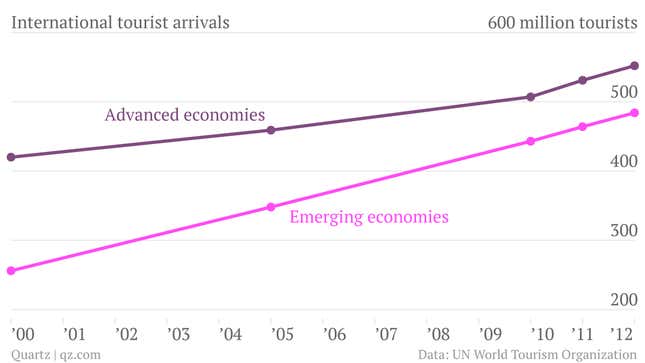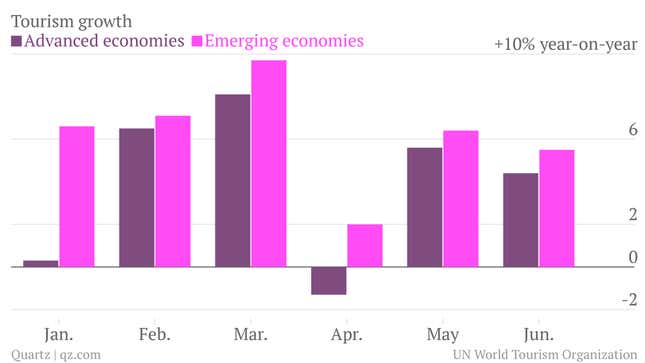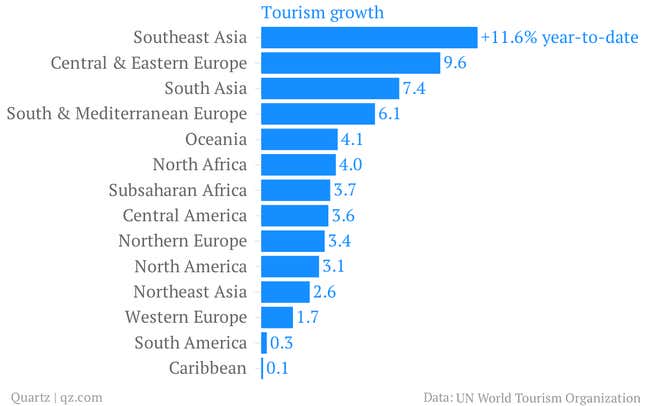This item has been corrected.
London, Paris and New York’s dominance in international tourism is being eroded by the rise of Budapest, Mumbai and Beijing. Since the turn of the 21st century, tourism to advanced economies has grown 31.4%, while in emerging economies tourism is up 89.1%, according to the UN World Tourism Organization Travel Barometer.

An advance release of the 2013 barometer (pdf) with tourism data for the first half of this year shows the gap continues to narrow. Advanced economies have seen a 3.9% rise in tourism year-to-date compared with 6.2% for emerging economies. Tourism includes not only leisure and business travel, but also family visits, religious pilgrimages and medical trips.
The UNWTO makes no conclusion on the cause of this trend. However, their forecasting model—which predicts that emerging economy tourism will eclipse that of advanced economies around 2015—uses measures of traveler affluence and business travel potential as key predictors of tourism. From 2000 to 2012, GDP grew 56.6% in emerging markets and 163.2% in developed economies, according to the World Bank.
A more affluent consumer class in emerging economies is driving other consumer booms such as dog ownership and drug use.
Emerging economies have seen faster tourism growth than advanced ones in every month this year. Even in April, when advanced economies had their only declines in tourism—likely due to Easter falling in March instead of April—emerging economies saw more of it.

Regionally, Southeast Asia’s tourism business is growing fastest, 11.6% year-to-date. South America and the Caribbean, while still growing, are the laggards; they attracted near identical numbers of tourists as last year. Brazil, one of the world’s largest emerging economies, may be contributing to South America’s dowdiness. Nearly all of Brazil’s travel and tourism comes from locals, making its tourism sector one of the world’s least international. That may be partly because of the expense: Rio and São Paulo are more expensive cities than London.
No region in the Western hemisphere has grown its tourism business by more than 3.6% in 2013.

Correction (Aug. 30): An earlier version of this story incorrectly referred to the UN organization that tracks world travel. It is the World Tourism Organization, not the World Travel Organization.
